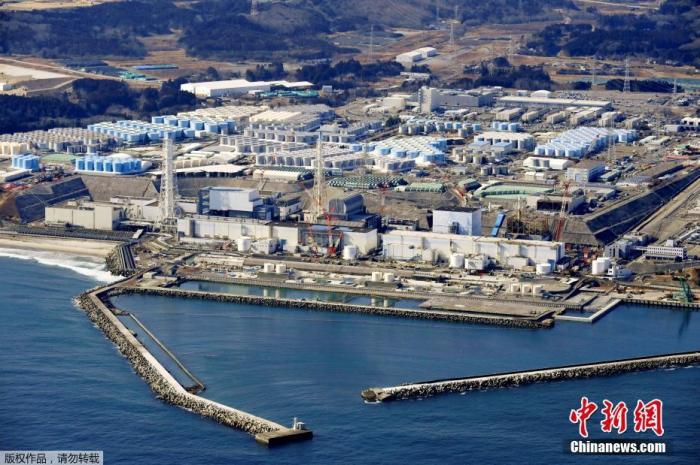TEPCO will inspect defective containers at the Fukushima Daiichi Nuclear Power Plant due to poor management of nuclear pollution waste
According to Kyodo News on June 7, due to the leakage of radioactive materials in containers in the waste storage area of the Fukushima Daiichi Nuclear Power Plant, Tokyo Electric Power Company is stepping up inspections of the same kind of containers.
Data map: The picture shows the Fukushima Daiichi Nuclear Power Plant in Japan on February 13.
It is reported that there are about 5,900 containers to be inspected, of which the internal details of about 4,000 are unknown. Even some of the containers cannot even be found to be installed, exposing the imperfect management of TEPCO.
According to Tokyo Electric Power Company, in early March, the radiation level in the drainage channel of the Fukushima Daiichi Nuclear Power Station increased and the alarm sounded. After investigating the cause, it was found that a container in the upstream waste storage area was corroded and leaked radioactive materials.
The container contained wastes such as water-absorbing film used in the process of scrapping the reactor. Nuclear contaminated water leaked from the bag and corroded the container and leaked to the outside of the container.
There are approximately 85,000 containers for storing such waste and rubble in the Fukushima Daiichi Nuclear Power Plant. About 4,000 of these containers were installed before December 2017 when the container information was managed in the form of a database. Therefore, the internal details are not clear.
Tokyo Electric Power Company plans to open the box from July to October this year to confirm its internal situation.
In addition, the person in charge of Fukushima Prefecture and the prosecutor of the Atomic Energy Regulatory Commission discovered 4 and 16 containers with no specific information at the end of March and mid-May of this year, respectively.
The Tokyo Electric Power Company explained that the maintenance management plan will be adjusted in the future.
(Headquarters reporter He Xinlei)

